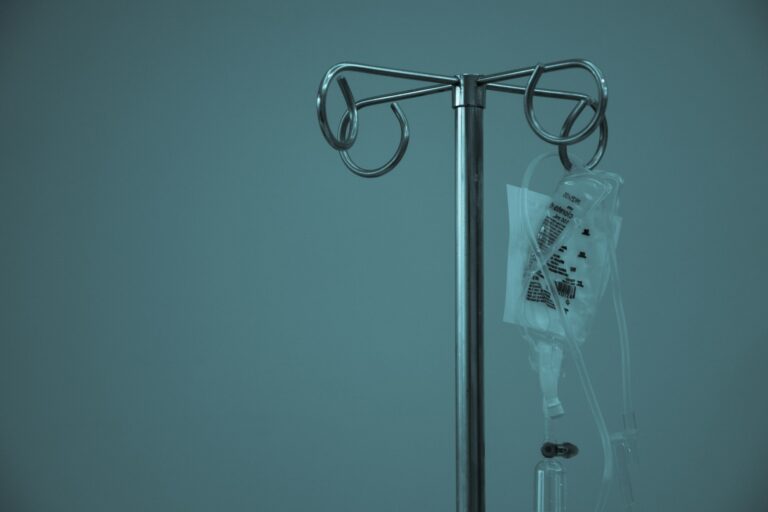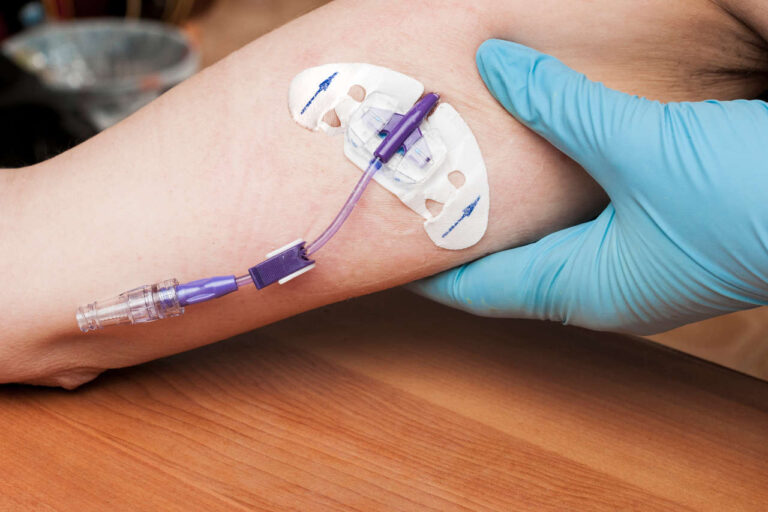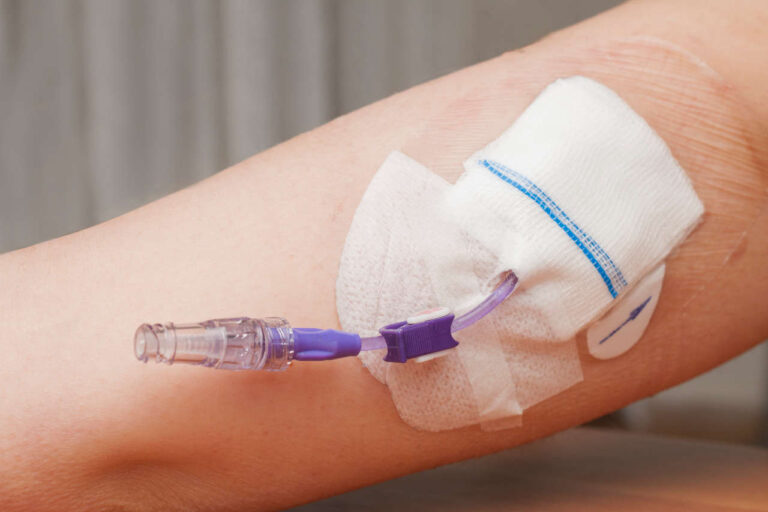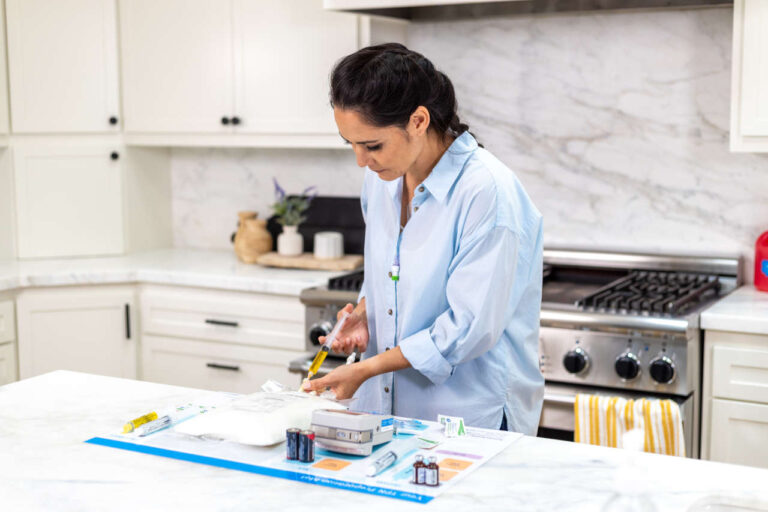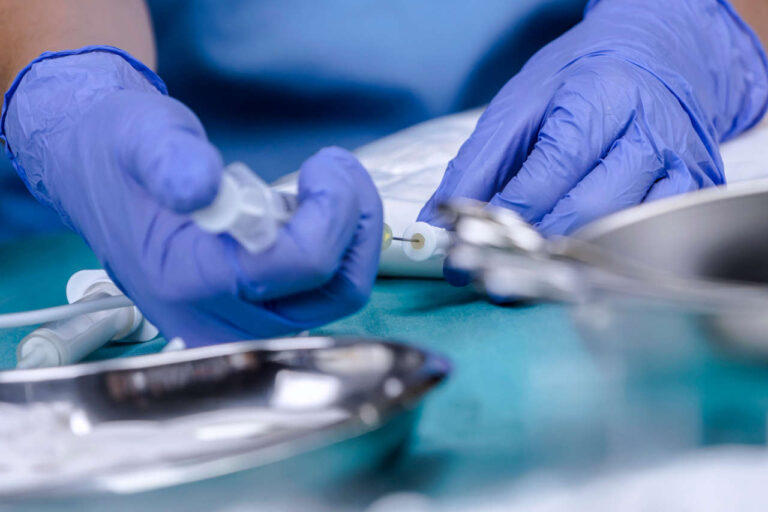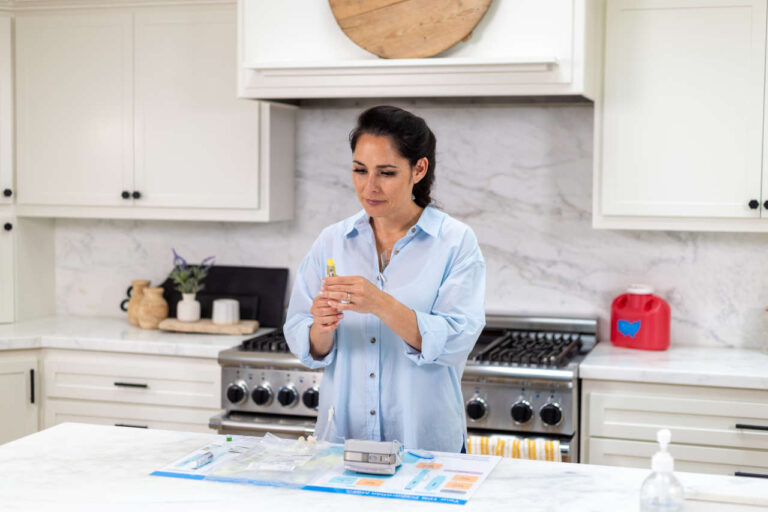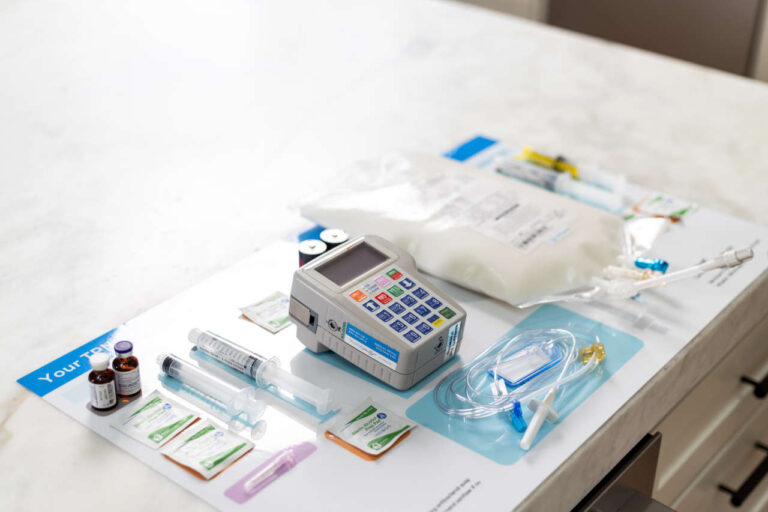
While TPN (total parenteral nutrition) can be life-saving for individuals with severe or long-term intestinal failure, it can also lead to a potentially life-threatening condition called transaminitis.
Ask About TPN Home Infusion
In this article, we will discuss transaminitis in individuals undergoing TPN therapy.
A Quick Overview of Transaminitis
Transaminitis, or hypertransaminasemia, occurs when the levels of one or both key liver enzymes, alanine transaminase (ALT) and aspartate transaminase (AST), are elevated above the normal range.
ALT and AST belong to a family of enzymes called transaminases or aminotransferases. Your liver needs them to break down substances and remove toxic chemicals from the body.
Transaminitis is not a disease; it is a sign of injury to the liver cells. Several conditions can cause elevated transaminases, such as:
- Fat build-up in the liver
- Viral hepatitis
- Heavy drinking
- Liver damage due to certain medications
Below, we will examine the occurrence of transaminitis in patients receiving total parenteral nutrition.
Further Reading: TPN እና የጉበት ጉዳት፡ አጠቃላይ እይታ
TPN and Transaminitis: Are Elevated Transaminases Common?
Can TPN cause elevated liver enzymes? An increase in blood transaminase levels is one of the most frequent TPN-associated issues. It typically occurs during the first 2 or 3 weeks after starting TPN [1].
Other TPN-associated conditions include:
- Steatosis (fatty liver)
- Cholestasis (slowed bile flow)
- Gallbladder stones
How TPN Can Cause Transaminitis
Several mechanisms are thought to cause liver injury during long-term TPN.
People on long-term TPN therapy often have lower blood levels of choline. Choline deficiency is associated with both steatosis (fatty liver) and elevated transaminases [2][3].
Some studies suggest choline supplementation may help reverse these TPN-associated abnormalities.
በተጨማሪ አንብብ፡- TPN and Cholestasis: 7 Frequently Asked Questions
The risk of transaminitis may be higher in those receiving first-generation soybean-based lipid preparations. In contrast, second-generation and third-generation preparations appear to carry a lower risk.
In addition, minerals in TPN preparations, such as copper and manganese, may accumulate in the liver. An excess of these minerals can cause elevated liver enzymes and even liver damage.
Get Financial Assistance for TPN
TPN and Transaminitis: Strategies To Manage Transaminitis During Long-Term TPN Therapy
If you or anyone you love has TPN-associated transaminitis, your provider may [4]:
- Treat the underlying liver disease.
- Advise you to try avoiding medicines that can damage liver cells, such as antibiotics, pain medications, and certain herbal preparations.
- Treat bacterial overgrowth.
- Avoid overfeeding.
- Adjust the lipid (fat) content of the TPN formulation.
- Prescribe specific medications to reduce liver damage.
- Switch to enteral nutrition where possible.
Your provider may also decide to administer intravenous nutrient solutions using a method called cyclic TPN. Unlike continuous TPN, this method offers your body a “metabolic” rest, allowing your liver to heal.
According to a 2017 study, cyclic TPN significantly reduces both ALT and AST levels [5].
Likewise, SMOFlipid, an injectable lipid supplement, can help reduce ALT and AST levels in children [6].
Key Points
- Transaminitis (elevated transaminases) is one of the most common TPN-associated complications.
- Other factors, such as heavy drinking and hepatitis, can also cause elevated transaminases.
- While transaminitis is not a disease, it is one of the earliest signs of liver injury.
- TPN-associated transaminitis is thought to occur due to choline deficiency.
- Several measures can help improve elevated transaminases. These include treating underlying liver disease, avoiding overfeeding, and switching to cyclic TPN.
ዋቢዎች፡-
- Grau, T., Bonet, A., Rubio, M. et al. Liver dysfunction associated with artificial nutrition in critically ill patients. Crit Care 11, R10 (2007). https://doi.org/10.1186/cc5670
- Shronts, E P. “Essential nature of choline with implications for total parenteral nutrition.” Journal of the American Dietetic Association vol. 97,6 (1997): 639-46, 649; quiz 647-8. doi:10.1016/S0002-8223(97)00161-2
- Buchman, A L et al. “Choline deficiency causes reversible hepatic abnormalities in patients receiving parenteral nutrition: proof of a human choline requirement: a placebo-controlled trial.” JPEN. Journal of parenteral and enteral nutrition vol. 25,5 (2001): 260-8. doi:10.1177/0148607101025005260
- Gabe, S M, and A Culkin. “Abnormal liver function tests in the parenteral nutrition fed patient.” Frontline gastroenterology vol. 1,2 (2010): 98-104. doi:10.1136/fg.2009.000521
- Arenas Villafranca, J.J., Nieto Guindo, M., Álvaro Sanz, E. et al. Effects of cyclic parenteral nutrition on parenteral-associated liver dysfunction parameters. Nutr J 16, 66 (2017). https://doi.org/10.1186/s12937-017-0289-7
- Kitazawa, Chelsey; Bates, Kara; and Lew, Shannon, “The Effectiveness of Smoflipid on Liver Function in Pediatric Patients with Intestinal Failure Related Parenteral Nutrition Associated Liver Disease (PNALD)” (2018). Loma Linda University Research Reports. 14.





